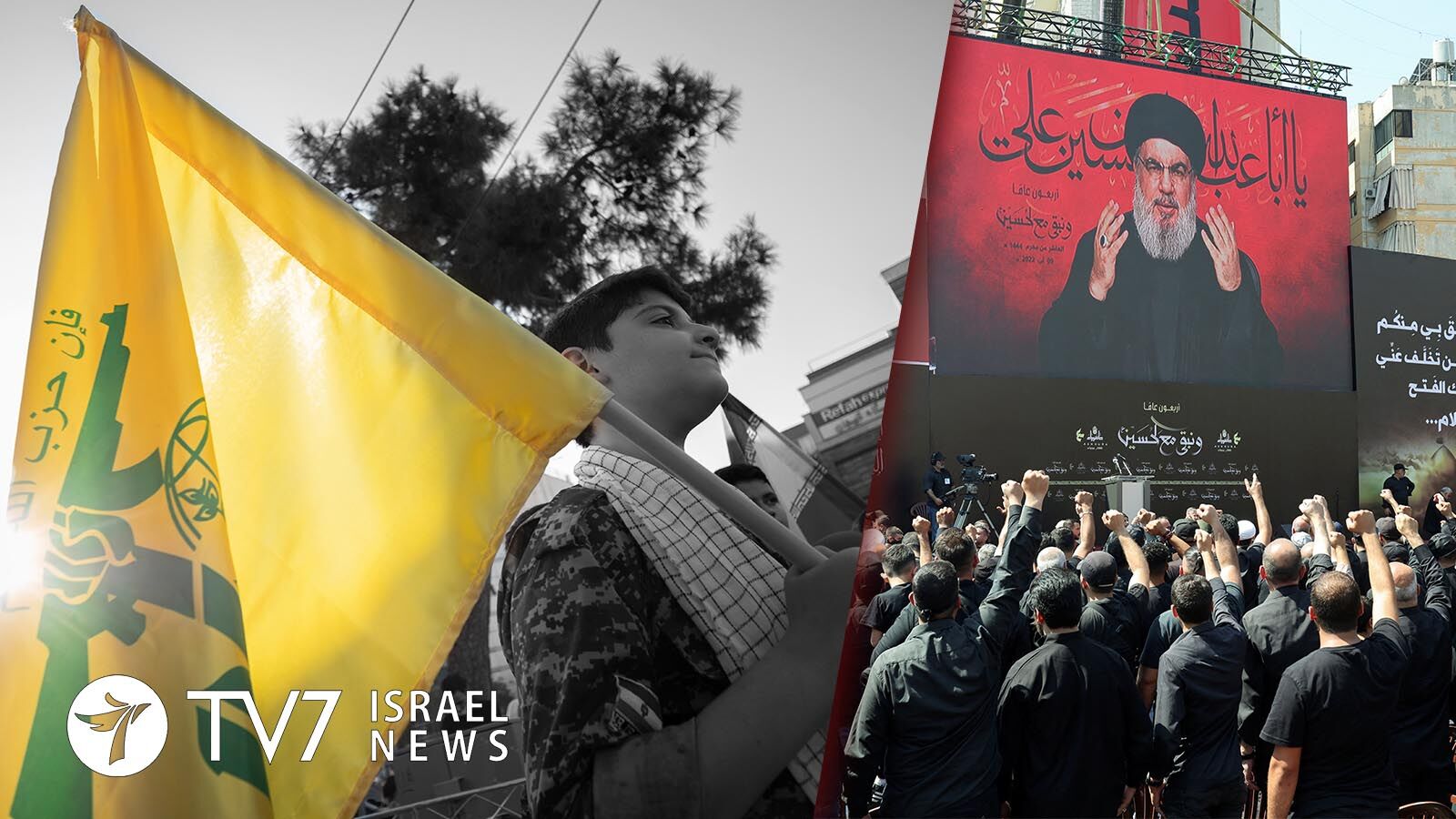In a desperate attempt to deter Israel from any attempts to expand their targeting of Palestinian militants to Lebanon, Iran instructed its powerful armed proxy in the Arab Republic to threaten Jerusalem.
By Jonathan Hessen and Erin Viner
“Any attack on any human being will not go unpunished or unanswered,” Hezbollah Secretary General Sheikh Sayyed Hassan Nasrallah in a televised address from an undisclosed bunker in Beirut for fear of his own life.
Nasrallah made the remarks during an address marking Ashura, a mournful commemoration for Shi’ite Muslims of the killing the Prophet Mohammad’s grandson Hussein.
“We heard in the past few days that they are planning to assassinate leaders in the Palestinian Islamic Jihad (PIJ), in Hamas or in the Palestinian factions outside occupied Palestine, including Lebanon,” said the terror group’s leader stressing, “On the Day of Ashura, we tell this enemy that any attack on any human being in Lebanon will not go unpunished or unanswered.”
The comments came after Israel’s Operation Breaking Dawn last weekend against the PIJ movement based in the Gaza Strip, prompted by the arrest by Israeli security forces of a senior Islamic Jihad leader earlier this month.
During the outbreak of violence last Saturday, Israeli Defense Minister Benny Gantz indicated the possible targeting of PIJ officials abroad,
“Islamic Jihad leaders lounge abroad in restaurants and hotels in Tehran, Syria and Lebanon. They are disconnected from the Palestinian people and they seriously harm the lives of the Gazan people. They too will have to pay the price. The IRGC [which supports Islamic Jihad], will not pay the salaries of Gaza residents,” said Jerusalem’s top defense official.
The IDF stated that Israel’s Iron Dome defense system is estimated to have intercepted 97% of the 11,000 rockets the PIJ fired at Israeli communities during the three-day conflict that threatened much of southern Israel and sent residents in cities including Tel Aviv and Ashkelon into bomb shelters.
On Monday, a day after a truce brokered by Egypt, Lieutenant General (Ret.) Gantz stated that “in the future too if necessary, we will deliver a pre-emptive strike in order to defend Israel’s citizens, sovereignty and infrastructure and this is true for all fronts, from Teheran to Khan Younis. (in the West Bank).”
In related developments, the Iranian-aligned Houthi rebels have also pledged to join the Palestinian battle against Israel once their aspirations in the Yemen are realized.
Tens of thousands of the Islamist militants flooded the streets of Sana’a city to voice support for the PIJ, waving banners calling for the destruction of both the United States and Israel following their seizure of Yemen so they can eagerly participate alongside their Palestinian brethren in combat to eradicate the Jewish State.
“These huge crowds in this and other squares in all provinces of the Republic marking Ashura, confirm their unequivocal solidarity for the Palestinian people, for the Islamic Jihad movement and for the Al-Quds Brigades, and we will soon, God willing, (fight) side by side with that heroic force in the face of the Zionist forces. At the same time, today we are facing the unjust Saudi-American-Zionist aggression,” vowed Houthi member Mulataf al-Mawjani.
While the Houthis acquiesced to a United Nations brokered cessation of hostilities in recent weeks, intelligence officials have warned that Iran is blatantly exploiting this time to smuggle significant quantities of advanced weaponry to its proxy in Yemen.
Moreover, in a meeting between the Foreign Minister of the internationally-recognized Yemeni government of Abd Rabu Mansour Hadi, the Houthis apparently already breached the terms of the truce.
“As the Yemeni government, we implemented all terms (of the truce), everything we needed to implement. But the (Houthi) militias were always running away from these commitments,” said Yemeni Foreign Minister Ahmed Awad bin Mubarak. “There is a main issue in the truce terms that has not been abided by completely which is opening roads on the besieged cities of Taiz and other provinces,” he asserted, adding that, “There are more than 4.5 million Yemeni citizens who have been totally besieged for more than 8 years” of conflict between the sides.
“We will continue to positively deal with this truce,” vowed Sa’ana’s top diplomat, stressing that, “Taiz is a test of real peace and we will see if the militias will succeed or not.”
While the Iranian-backed movement refused to comment on allegations levelled against them, residents of the Houthi-controlled city of Sana’a voiced hope that peace would ultimately prevail.
“The people of Yemen want the truce to remove this dark period from around them,” commented Muhammad al-Qaoud, emphasizing that, “For the siege to be broken, for salaries to be paid, for peace to return to all the people of Yemen.” Sa’ana resident Sufian al-Thawr said that, “If this truce is not accompanied by practical steps that are reflected on the citizen, such as lifting the siege, (opening of) crossings, freedom of travel, and (payment of) salaries – then I think that the truce will be like its predecessors, and it is nothing but a warrior’s rest. I hope that the truce will be a gateway to direct negotiations for a lasting peace that restores stability and tranquility of the citizens.”
